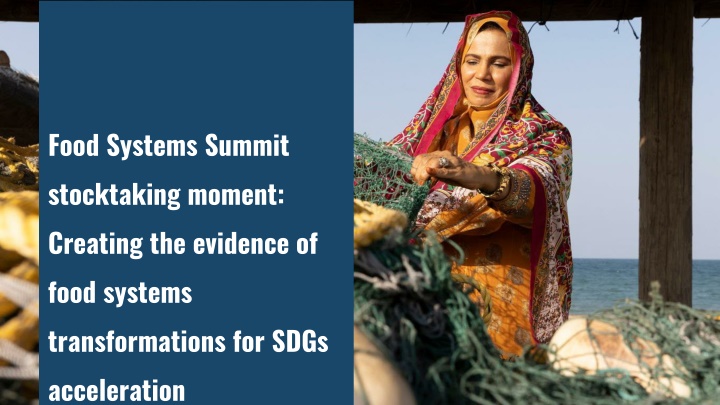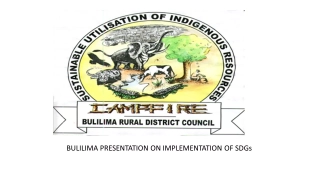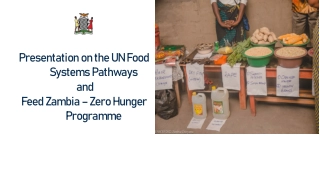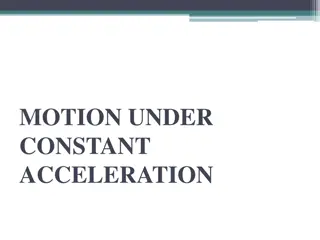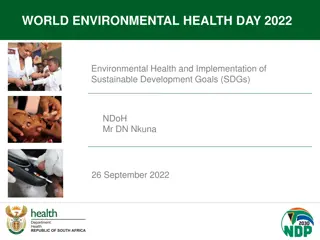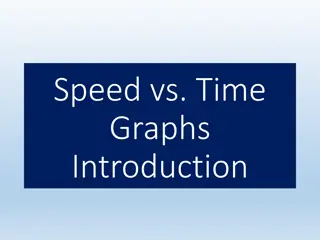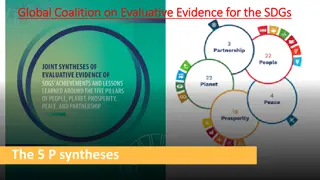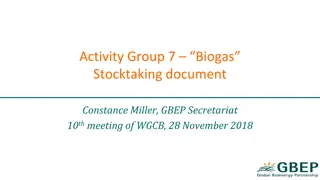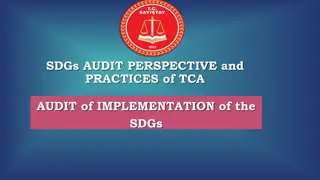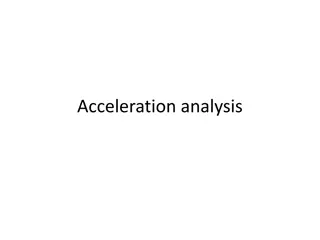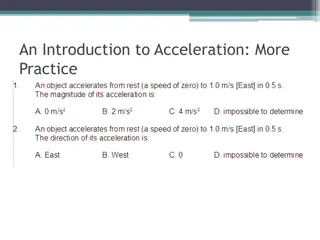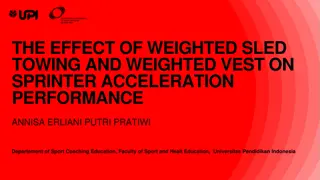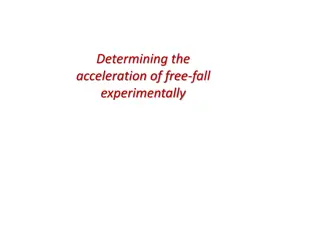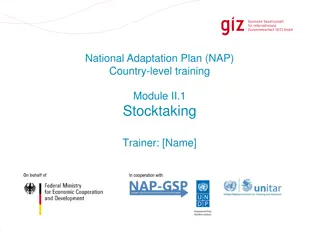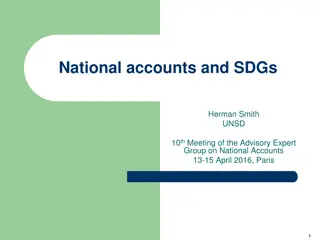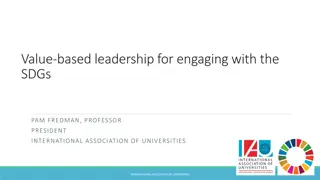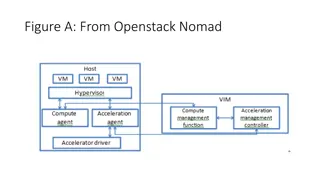Food Systems Summit Stocktaking Moment: Creating Evidence for SDGs Acceleration
The Food Systems Summit stocktaking moment emphasizes the need for evidence of food systems transformations to accelerate progress towards the Sustainable Development Goals. Highlighting the significant environmental, social, and economic costs generated by food systems, the summit underscores the urgency of addressing issues such as public health impacts, greenhouse gas emissions, biodiversity loss, and the plight of agricultural workers. With a focus on sustainable transformation and a global system providing nutritious food for all while respecting planetary boundaries, the summit calls for systemic policy changes and diversified resource mobilization to achieve long-term goals by 2030.
Download Presentation

Please find below an Image/Link to download the presentation.
The content on the website is provided AS IS for your information and personal use only. It may not be sold, licensed, or shared on other websites without obtaining consent from the author.If you encounter any issues during the download, it is possible that the publisher has removed the file from their server.
You are allowed to download the files provided on this website for personal or commercial use, subject to the condition that they are used lawfully. All files are the property of their respective owners.
The content on the website is provided AS IS for your information and personal use only. It may not be sold, licensed, or shared on other websites without obtaining consent from the author.
E N D
Presentation Transcript
Food Systems Summit stocktaking moment: Creating the evidence of food systems transformations for SDGs acceleration
Food systems and the SDGs Up to US$ 12 trillion/year hidden environmental, social and economic costs generated by FS Public health costs from unhealthy diets and over-consumption is assessed at US$6 trillion/year one-third of greenhouse gas emissions and up to 80 percent of biodiversity loss come from FS 2/3 of people living in extreme poverty are agricultural workers, etc.
Food systems and the SDGs The food industry is worth about US$ 10 trillion/year, equivalent to 10% of the global GDP The Nexus approach is essential From Problems to Solutions
Connecting the Dots We remain committed to keeping a strong focus on the sustainable transformation of the global agrifood system, aiming for a global system that can deliver sufficient, safe, affordable, nutritious food and healthy diets for all people and provide employment and income, particularly in rural areas, while at the same time fully respecting planetary boundaries in line with the 2030 Agenda, the Paris Agreement, the United Nations Framework Convention on Climate Change and the Convention on Biological Diversity and its upcoming post-2020 global biodiversity framework. HLPF 2023 ministerial declaration, paragraph 219
Country needs on food systems transformations Long-term needs: Transforming food systems by 2030 Knowledge and technical expertise Communication and advocacy Short-term needs: The 2023 stock-take Monitoring progress Funding and finance Funding & financing Monitoring progress (M&E tools) Communication & advocacy Knowledge & technical expertise Systemic policy change Leveraging local & global ecosystems Monitoring progress Institutional strengthening Diversified resource mobilization Call for a global funding mechanism Strategic funding for catalytic investments Move national pathways forward Peer to peer exchanges Costing & mainstreaming of pathways Make the Food Systems Approach practical Food systems resources tracking Milestones to keep the momentum Guidance on global reporting framework & indicators National baselines, tracking / mainstreaming in SDG Virtual platform & analytical tools Continued advocacy to maintain country level momentum Greater convergence of various intergovernmental processes Centralized portal
Dialogues with Food Systems Convenors Pathways are still centrally positioned. Impact of food crises and cost of living. Sustain advocacy and increase support. More coordination for country assistance. Needs: policy development, thought leadership, advocacy, leveraging finance. Diversity of follow up actions: National food system coordination units; food system labs; specific technical studies; integration into NDPs; monitoring and evaluation etc.
Planning for the Stocktaking Moment of 2023 Modality: Host Country Dates: Three days over the week 24-28 July (TBC and depends on host country) Main objective: Give space to countries to review together with the UN and stakeholders, progress on implementing their pathways, identify bottlenecks and support needed. I will convene a global stock-taking meeting every two years to review progress in implementing the outcomes of this process and its contributions to the achievement of the 2030 Agenda. This will be supported by the RBAs, the broader UN System and partners. Outcome: Solidify the global understanding of the role of food systems in achieving the SDGs, especially in the current food and cost-of-living crisis context. -UNSG Statement of Action, FFS
Stocktaking moment first thoughts Country owned event Essential to connect all the agendas Preparation process will be critical Mix of review sessions and high impact dialogues Balancing realism and optimism Progress, success stories, bottlenecks Partnerships supporting countries: ecosystem of support and UN
